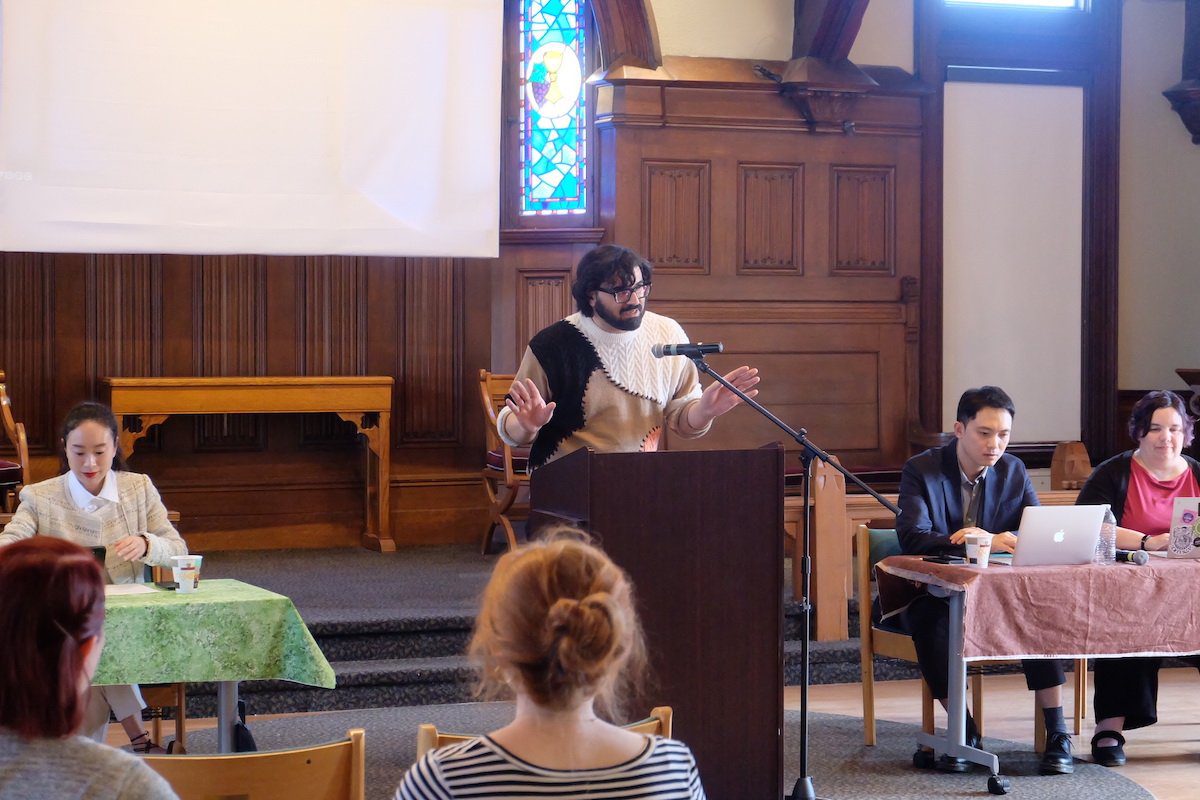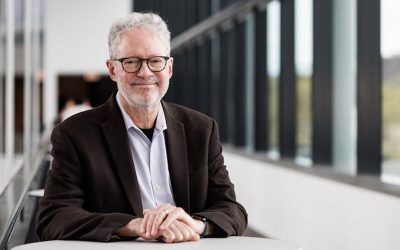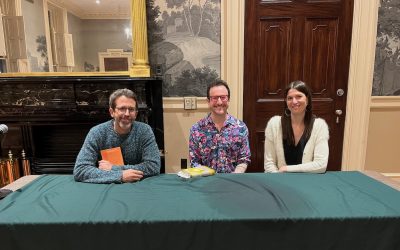Organized by Graduate Division of Religion students
April 2023 – Students and professors dove deep into religious translation at the 20th annual Transdisciplinary Theological Colloquium (TTC) at Drew Theological School.
Organized by Drew’s Graduate Division of Religion’s PhD students, this year’s conference theme was Haunted (by) Speech: Translating Religions and Religious Translations.
Enlarge

“I find this year’s theme of translation to be fascinating because of the broad range of conversation it spurs in the domain of religion; the poetics and politics, risks and possibilities, the ethics and aesthetics of it all,” said PhD student Yajenlemla. “This idea of translation for a theme is especially intriguing and important because it compels us to consider the modalities and limitations of translation as it relates to cultural, political, ethical, and religious implications.”
The hybrid event took place over three days, welcoming students and scholars from Drew and other institutions across North America in six panel discussions dissecting and exploring topics of urgent concerns regarding translating religion. This was the first in-person gathering of the TTC since 2019.
“The TTC has a long history at the Theological School, starting in the early 2000’s as a way to not only have sophisticated and nuanced conversations about theology, but also to bring in many well-known and exciting scholars into said conversations,” said Michael Anderson, PhD student and program assistant at the Theological School.
“It came into a brief pause in 2020, where it converted to accommodate our social distancing protocols, and then remained asleep in 2021-2022,” continued Anderson. “The idea of it coming back, waking up as it were, in 2023 has opened up a lot of new possibilities for the conference. Not the least because by being hybrid, it has allowed us to engage more global perspectives and voice. This TTC is also special as it is one of the few ‘solely grad student run’ TTC events. I think there is something really important about how grad students are orienting the direction of a major theological conference, alerting all of us to what we think are the pressing issues in theological and religious education today.”
Enlarge

Many Drew PhD students presented, moderated, or were respondents during the event, including Anderson, Susan Chang Saridakis, Julian Cook, Hunter Edwards, Carolina Glauster, Esther Inuwa, Eunchul Jung, HaYoung Kang, Minenhle Nomalungelo Khumalo, Tzu Yu Lin, Isabella Novsima, Jane Okang, Erin Parks, Beth Quick, Rose Sharon, Amiel Wayne, Kenia Vanessa Rodriguez, and Yajenlemla.
The event featured a keynote presentation on two of the three days. Assistant Professor of Transnational Christianity and Gender Studies Minjung Noh led the charge with her presentation on “Translating Religious Material Culture: The Korea Repository (1895) Print of Buddhist Prayer Beads.”
Noh explained how Alex Parrish, curator at Drew’s Special Collections & University Archives, discovered a large sheet of folded paper buried between the pages of The Korean Repository, a Korean missionary periodical dating back to 1895. It was a hand drawn picture of Buddhist prayer beads, along with the names of Buddhist gods corresponding to each bead written in Chinese, Korean, and English.
She explored the variety of translations within this unique finding: that of a 3-D object to a drawn version, the Buddhist scriptural source on the prayer beads was translated from Sanskrit to Chinese, and the Korean translation of a Buddhist cultural artifact.
Elaine Penagos, Graduate Division of Religion student at Emory University, and Yohana Junker, assistant professor of art, religion, and culture at Claremont School of Theology, delivered a keynote presentation, “The Poetics of Continuity: a Conversation on Cuban and Brazilian Afro Religious Traditions Translated Through the Visual Arts.”
A shift from a traditional keynote lecture, the presentation was a conversational exchange between two scholars and friends, focusing on several artists and visual displays of works of art from their respective contexts: Brazil (Junker) and the Caribbean, especially Cuba (Penagos). The presenters commented on the artists and art works dialogically, and in doing so, they helped explore questions of translation in regard to media, ideas, interpretation, and meaning making.
“The keynotes’ presentation was challenging, critical, and channeling of our senses as we think about the translatability of art and how it narrates liberation and resistance,” said Rodriguez.
Cutting-edge contributions from past years of the TTC at Drew are available in a series of volumes published by Fordham University Press.


